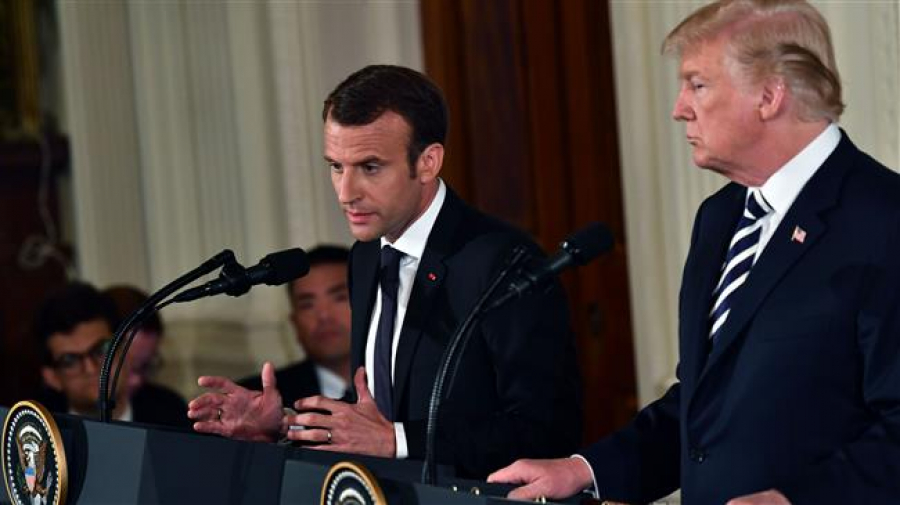The US and French presidents have called for major changes to Iran’s nuclear deal, despite Tehran’s repeated assertions that the agreement is non-negotiable.
"I can say that we have had very frank discussions on that, just the two of us," French President Emmanuel Macron told a joint press conference with his US counterpart Donald Trump in Washington on Tuesday.
When asked to clarify if he meant a new accord or an add-on agreement, Macron said, "I am not saying that we move from one agreement to another."
Macron noted that a new deal should incorporate three additional elements, including Iran's ballistic missile program, the Islamic Republic’s regional influence and what happens after 2025 when Tehran will restart part of its nuclear program under the accord.
The French president described the 2015 nuclear deal, known as the Joint Comprehensive Plan of Action (JCPOA), only as the "first pillar" of a wider final agreement.
Macron’s statements came despite the initial speculations that his visit to Washington was aimed at convincing Trump not to pull out of the accord.
Trump, who currently faces a May 12 deadline to announce his final position on the Iran deal, said, “I think we will have a great shot at doing a much bigger, maybe, deal," claiming that any new deal will be based on "solid foundations."
On Tuesday, Iranian President Hassan Rouhani once again warned the US against violating the 2015 nuclear deal, saying any failure to respect the multinational agreement would have “grave consequences.”
Iran has stressed that European signatories to the JCPOA should convince Trump not to pull out of the deal, because there is no alternative to the accord.
Trump has repeatedly threatened to pull out of the historical agreement, which was struck between the Islamic Republic and the P5+1 group of countries, including Washington itself.
The deal removed nuclear-related sanctions against Tehran, which, in turn, changed some aspects of its nuclear energy program. All other signatories have warned the US against quitting the deal.
Trump has said unless the European parties “fix the terrible flaws” of the accord by May 12, Washington would withdraw from the deal.
Amid Trump’s threats, other parties have stepped up diplomatic efforts to save the deal.
German Chancellor Angela Merkel will also visit the White House later this week to discuss the issue.
Russia and China have also issued a draft statement, calling on the UN member states to express their "unwavering support" for Iran’s nuclear agreement amid the US efforts to scrap the deal.
Russian Foreign Minister Sergei Lavrov said on Monday he had agreed with his Chinese counterpart that Moscow and Beijing would try to block any US attempt to sabotage the nuclear deal.


















